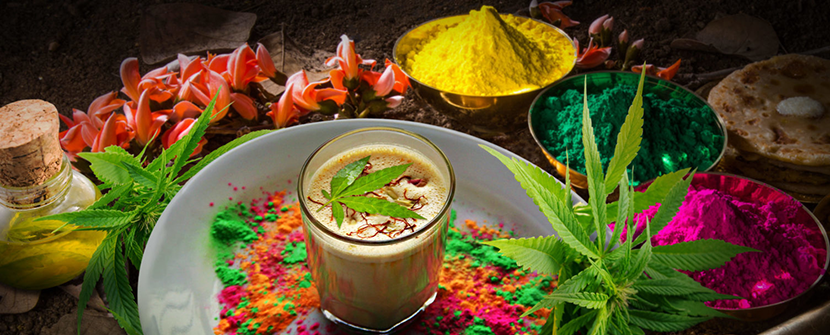Bhang is a traditional Indian drink made from cannabis leaves and is considered an integral part of Indian culture, particularly during the festival of Holi. Bhang has been used for centuries in India for its medicinal properties, as well as its ability to induce a state of euphoria. In this blog, we will explore the history of bhang, how it's made, its benefits, and its spiritual significance.
History
Bhang has been used in India for over 4,000 years and is mentioned in several ancient Indian texts, including the Atharva Veda, a collection of hymns and mantras. In the text, bhang is described as a sacred plant that brings happiness and eliminates fear.
In ancient India, bhang was used for both medicinal and recreational purposes. It was used to treat a variety of ailments, including fever, dysentery, and sunstroke. It was also used as a pain reliever and as a way to promote digestion.
During the Mughal Empire, bhang became more widely used as a recreational drug, particularly among the nobility. The emperor Akbar is said to have enjoyed drinking bhang and even had a bhang bar installed in his palace.
Today, bhang is still used in India, particularly during the festival of Holi, where it is consumed in large quantities as part of the celebrations.
How is it made?
Bhang is typically made by grinding cannabis leaves into a paste and then mixing it with milk, sugar, and spices. The paste can also be mixed with water and filtered to create a clear liquid. The most important part of making bhang is the preparation of the cannabis leaves. The leaves are first dried and then ground into a fine powder. The powder is then mixed with the milk, sugar, and spices to create the bhang paste.
Benefits
Bhang has a number of potential health benefits. It has been used in India for centuries as a pain reliever and as a way to promote digestion. It is also believed to have anti-inflammatory properties and may help to reduce inflammation in the body. In addition to its medicinal benefits, bhang is also used recreationally for its ability to induce a state of euphoria. It is often consumed during social gatherings and is considered to be a way to bring people together.
Spiritual Significance
Bhang is also considered to have spiritual significance in India. It is believed to be a sacred plant that brings happiness and eliminates fear. In Hinduism, it is associated with the god Shiva, who is said to have consumed bhang to achieve a state of ecstasy. During the festival of Holi, bhang is consumed as part of the celebrations. It is believed to bring people together and promote a sense of community.
Bhang is a traditional Indian drink made from cannabis leaves that has been used for centuries for both medicinal and recreational purposes. It has a number of potential health benefits, including pain relief and anti-inflammatory properties, and is also used for its ability to induce a state of euphoria. Bhang is also considered to have spiritual significance in India and is associated with the god Shiva.


